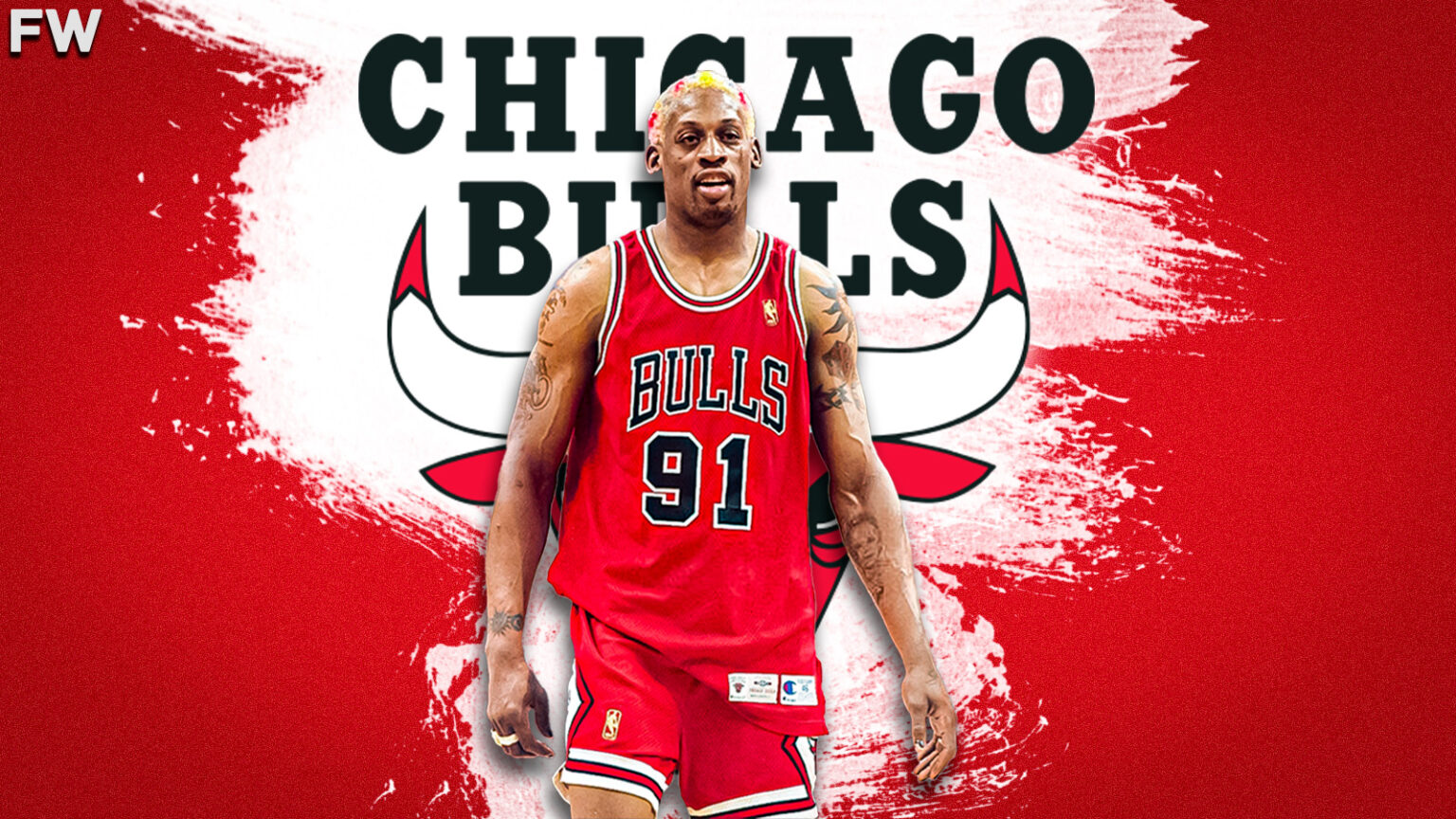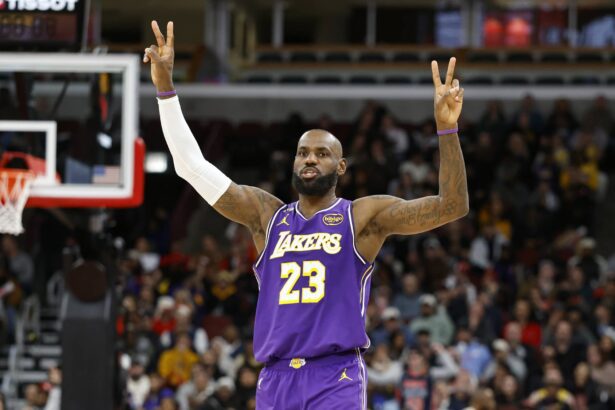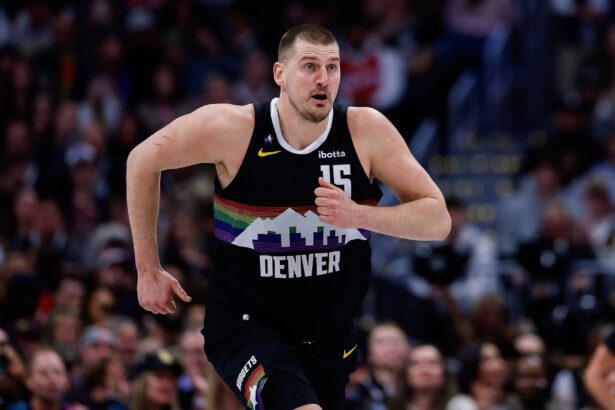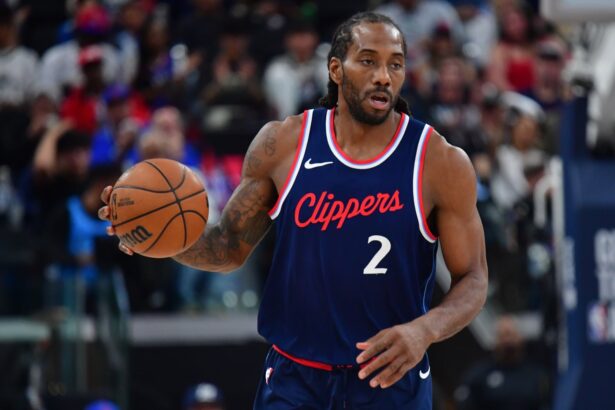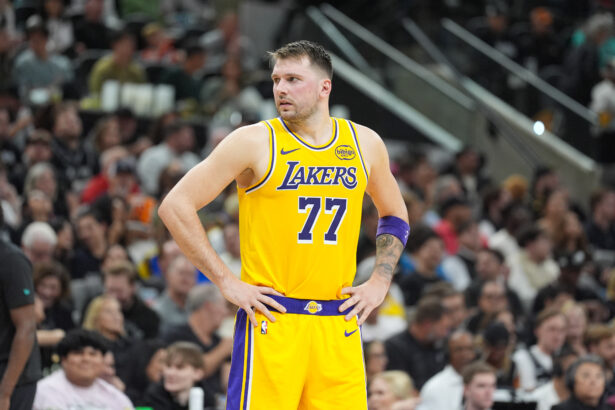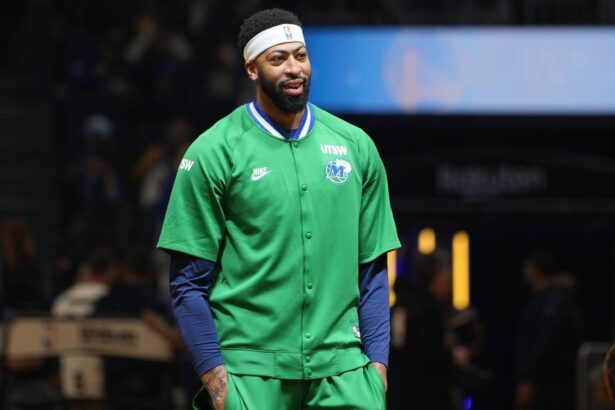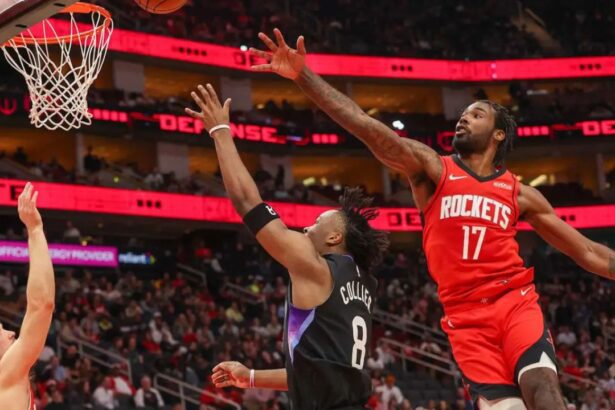- Rodman sought the sensation of pain to fuel his relentless game
- He was one of the greatest rebounders ever
- He wanted to get hurt to get motivated
Dennis Rodman, the enigmatic and iconic NBA player known for his fierce playing style and unconventional approach to the game, found an unexpected source of motivation on the basketball court: physical pain.
Rodman, who played for teams like the Chicago Bulls and the Detroit Pistons, revealed that he thrived on the discomfort and challenges that the game presented:
“I wanna go out there and get my nose broke, I wanna go out there and get cut… Something that’s really going to bring out the hurt, the pain, I want to feel that.”
What set Rodman apart was his willingness to embrace pain as a driving force. He described his playing style as gritty, hungry, and determined.
He wanted to feel the physical toll of battling for loose balls, scrapping for rebounds, and diving for every possession. Rodman’s approach was a stark departure from the norm – while most athletes seek to avoid pain, he actively sought it out.
The Legacy Of Dennis Rodman
Dennis Rodman’s legacy in the world of basketball extends far beyond the numbers on the stat sheet. While his impressive per-game averages tell a story of dominance on the court, Rodman’s impact reaches deeper into the realms of the game’s culture, attitude, and unapologetic individuality.
During his illustrious career, Rodman was a force to be reckoned with on the boards, displaying an unmatched ability to secure rebounds.
His per-game averages of 13.1 rebounds, 7.3 points, and 1.8 assists underscore his defensive prowess and his value to his team’s success. These numbers, however, only scratch the surface of his influence.
Rodman’s journey to NBA stardom was unconventional, to say the least. Standing at 6-foot-7 and hailing from a lesser-known college, he defied expectations when he was drafted by the Detroit Pistons in 1986.
His career took off as he embraced his role as a rebounding machine and defensive stalwart. But it wasn’t just his skills that made him unforgettable – it was his attitude.
His flamboyant hairstyles, ever-changing hair colors, and unapologetic self-expression made him a cultural icon. Beyond the court, he was known for his eccentric behavior and unfiltered interviews, captivating fans and media alike.
Rodman’s personality was as colorful as his appearance, and his legacy is inseparable from his willingness to be unapologetically himself.
On the court, Rodman’s contributions were invaluable to his teams. His relentless pursuit of rebounds and defensive stops earned him two Defensive Player of the Year awards. His ability to disrupt opponents and create scoring opportunities for his team showcased his basketball IQ and selflessness.
Rodman’s legacy also includes his five NBA championships, three with the Chicago Bulls alongside Michael Jordan and Scottie Pippen. His role as a defensive anchor and a glue player cemented his status as an essential component of championship teams.
Beyond the accolades, Rodman’s impact on the game’s culture endures. His legacy is a reminder that success doesn’t always fit within the conventional mold. He showed that being true to oneself, embracing individuality, and playing with passion can leave an indelible mark.
His statistics tell a story of a defensive powerhouse, but his impact goes beyond the numbers. He’s a reminder that in the world of sports, as in life, embracing authenticity and defying norms can lead to a legacy that transcends the game itself.
We sincerely appreciate and respect you as a reader of our site. It would help us a lot if you follow us on Google News because of the latest update.
Thanks for following us. We really appreciate your support.

